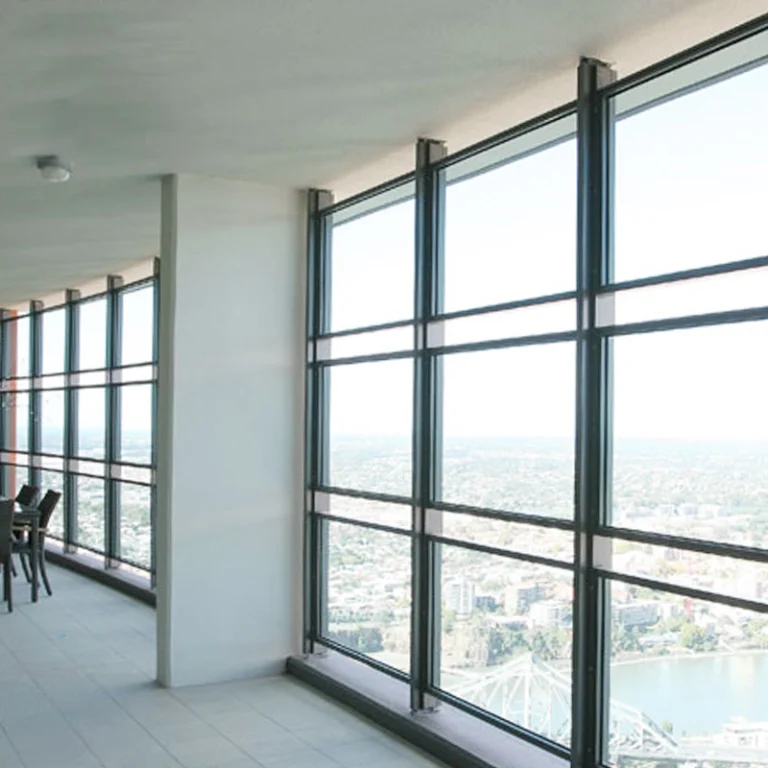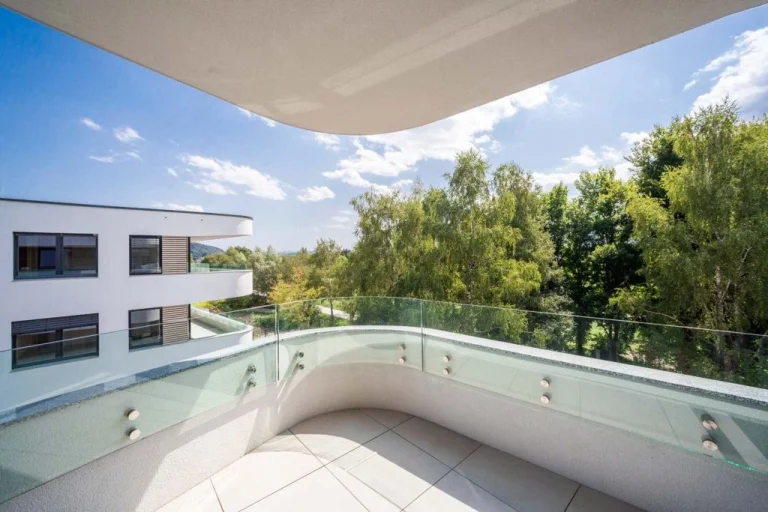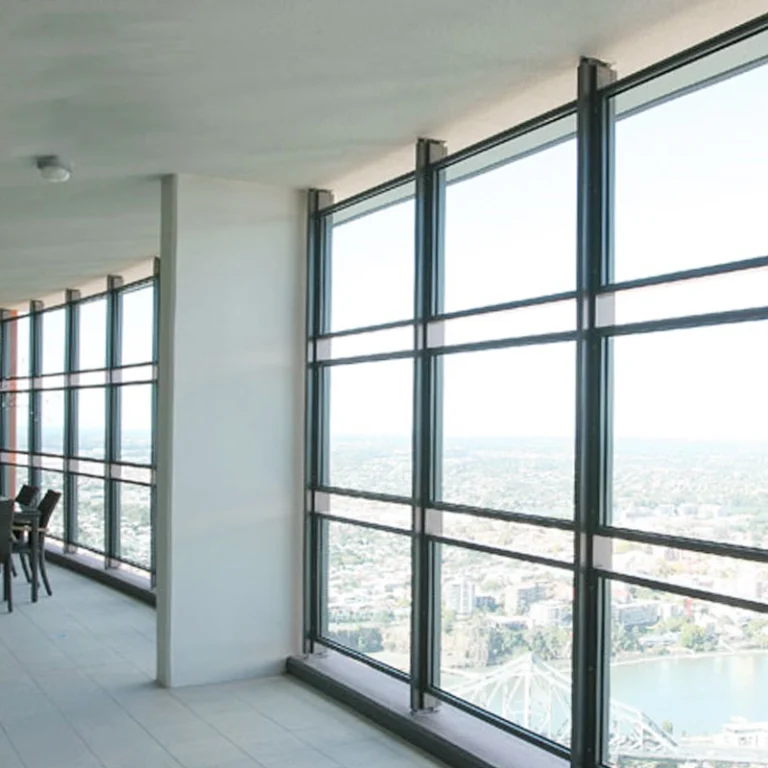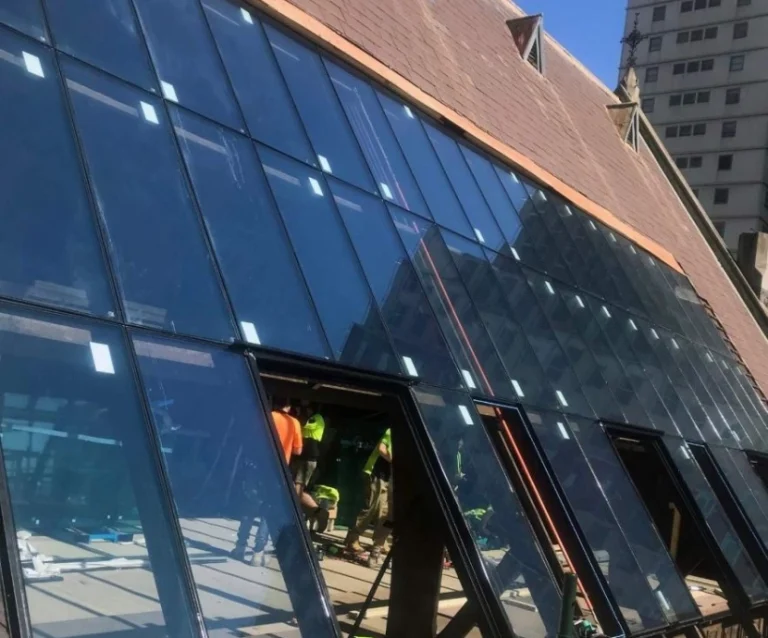
What Sets Laminated Glass and Insulated Glass Units Apart
Composition and Manufacturing Process
Laminated glass windows are crafted by fusing two or more glass sheets with a tough layer, often PVB (polyvinyl butyral), EVA (ethylene-vinyl acetate), or other strong materials, sandwiched between them. This layer keeps the glass from scattering into sharp pieces if it breaks. For example, Landson Glass makes high-quality laminated products with two modern laminating lines. Their clean, climate-controlled factories produce top-grade Safety Glass that follows Australian, New Zealand, and European rules.
Insulated Glass Units (IGUs) are built differently. They use two or more glass panes held apart by a spacer, with edges sealed tightly. The space between is often filled with gases like argon or krypton to improve heat-blocking power.
Differences in Structure and Layering
The big difference lies in their purpose. Laminated glass windows have a middle layer to boost safety and hush noise. Insulated Glass Units use a gap filled with air or gas to stop heat from moving through. When laminated glass breaks, it sticks together thanks to the interlayer. Insulated Glass Units, though, focus on keeping heat in or out, not on holding together if shattered.
Performance Characteristics Compared
Laminated glass windows stand out for safety, quietness, and UV protection. Landson Glass’s Laminated Glass is your quality choice due to its ease of cutting, Consistent dimensions and absence f imperfections. Insulated Glass Units are champs at saving energy, keeping heat out in summer and locking it in during winter. They also prevent water droplets from forming inside by insulating well.
Applications of Laminated Glass Windows in Modern Architecture
Residential Use Cases for Safety and Noise Reduction
At home, laminated glass windows work well in risky spots like balconies, staircases, or large sliding doors. The interlayer holds broken glass in place, cutting the chance of harm from accidents or break-ins. They also block out loud sounds, perfect for houses near busy streets or airports. Landson Glass’s Rice Paper Laminated Glass is a kind of decorative glass design. But With Safety Laminated Glass, mixing style and protection for things like shower screens or room dividers.
Commercial Benefits: Security, UV Protection, and Design Versatility
In businesses, laminated glass windows add security against forced entry and block up to 99% of harmful UV rays that can fade furniture or floors. Landson Glass Supplies High-Quality, SAI Global-Certified Laminated Stock, with options like tinted laminated glass for sun control and privacy. Plus, designers love its flexibility—Ceramic Fritted Tempered Glass lets them add patterns or logos to building fronts while meeting safety standards.
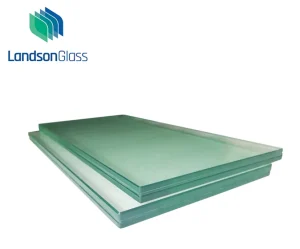
The Role of Insulating Glass Units in Energy Efficiency
Thermal Insulation and Climate Control
Insulating Glass Units are made to manage heat flow. The air or gas-filled gap between panes acts like a shield, slowing down heat movement. This keeps homes and offices comfy in cold winters and cool in hot summers, no matter the weather outside.
Reducing Energy Costs in Residential and Commercial Buildings
By keeping indoor temperatures steady, Insulating Glass Units cut down on the need for heaters or air conditioners. This lowers energy use, which means smaller bills over time. Homeowners and businesses save money, making Insulating Glass Units a wise pick for eco-friendly buildings.
img.Insulating Glass Units.webp
Comparing Durability and Safety Between the Two Glass Types
Impact Resistance and Breakage Behavior
Laminated glass windows are sturdy. Their interlayer makes them resist hits well. If they break, the glass stays together, lowering the risk of injury from sharp bits. This makes them great for stormy areas or places with vandalism. IGUs might use toughened glass that’s harder to break than regular glass, but if it shatters, it doesn’t hold together unless it’s also laminated.
Long-Term Maintenance Considerations
Laminated glass windows need little care, just regular wiping down. But if water seeps into badly sealed edges over time, the layers might come apart. IGUs rely on tight edge seals. If the seal breaks, water can get into the gap, causing foggy windows that are tough to fix without replacing the whole unit.
Choosing Between Laminated Glass and Insulated Glass Based on Your Needs
Factors to Consider: Location, Purpose, and Climate
Choosing the right glass depends on what you need:
- Pick laminated glass windows for safety, noise reduction, UV protection, or custom designs.
- Go for Insulating Glass Units if you want to save energy and live in areas with hot or cold weather.
Your location matters. Coastal homes might need laminated glass for storm protection. Colder inland spots might benefit more from IGUs to keep heating costs low.
Cost Comparison Over Time
Laminated glass windows cost more at first because they’re complex to make. But they last long and don’t need replacing often, even if damaged. IGUs might be cheaper upfront, depending on the setup.
| Feature | Laminated Glass Windows | Insulated Glass Units (IGUs) |
| Impact Resistance | High – stays intact upon breakage | Medium – may shatter unless also laminated |
| Breakage Behavior | Holds together due to interlayer | May scatter if not laminated |
| Safety Level | Excellent – reduced injury risk | Moderate – depends on glass type used |
| UV Protection | Built-in with interlayer | Limited – unless special coating added |
| Noise Reduction | Very good | Moderate to good |
| Energy Efficiency | Moderate | High – superior thermal insulation |
| Maintenance | Easy to clean; delamination risk over time | Seal failure may cause fogging |
| Best Use Cases | Storm-prone, high-crime, noise-sensitive areas | Regions with extreme temperatures |
| Upfront Cost | Higher – complex structure | Lower – simpler in some configurations |
| Long-Term Value | High – durable, less frequent replacement | Moderate – may need full unit replacement if failed |
How a Laminated Glass and Insulated Glass Units Manufacturer Ensures Quality Standards
Why Landson Glass is a Trusted Partner for Laminated and Insulated Solutions
Since 2002, Landson Glass has worked with the glass industry in Australia, New Zealand, and other countries. They’re trusted for steady quality in homes and big projects across the Europe-Pacific region. They offer custom solutions, from bulk orders to unique designs for special buildings.
Customization Service available at Australia Landson Glass (QingDao) CO., LTD.
Landson Glass provides lots of options. Their tinted laminated glass comes in colors like grey, bronze, and green. Decorative choices like Rice Paper Laminated Glass add flair to interiors. They can make glass up to 3210 x 5100mm, with custom edges, holes, cutouts, silkscreen patterns, or digital printing to fit any project’s style.
Industry Certifications and Testing Protocols
Landson Glass sticks to strict rules to ensure great products. Every piece is tested carefully before leaving the factory, so it works well in all kinds of weather. Their laminated products meet Australian, New Zealand, and European standards, giving customers peace of mind about safety and quality.
Frequently Asked Questions About Comparing Insulating Glass Units And Laminated Glass
Q: Which type of window is better for reducing outside noise?
A: Laminated glass windows are better at quieting noise. Their interlayer soaks up sound waves much better than standard Insulating Glass Units.
Q: Can I combine laminated glass with insulating units?
A: Yes, you can. A laminated IGU mixes laminated glass with an Insulating Glass Unit. It gives you safety and energy savings together.
Q: Which option lasts longer without maintenance issues?
A: Both can last long if made right. IGUs might get foggy if seals break, needing replacement. Laminated glass windows stay usable even after damage, often without quick fixes.
Q: How do I choose between energy efficiency vs security?
A: If you want lower energy bills all year, choose Insulating Glass Units. If protection from break-ins or storms matters more, pick laminated glass windows.
To learn how our glazing solutions can improve your project’s comfort and safety, contact us today. Landson Glass, a top laminated glass and insulated glass units manufacturer, focuses on quality and customer needs. We provide solutions tailored to your building dreams.



